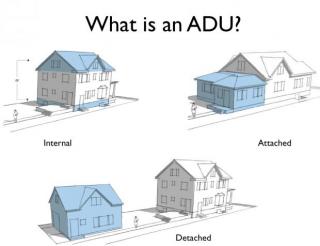Sacramento – California has long known Accessory Dwelling Units (ADUs) can boost the state’s affordable housing supply, forging legislation in recent years to make them easier and less expensive to build. Commonly known as casitas, backyard cottages, granny flats and in-law units, ADUs enable homeowners to generate rental income or keep family, like aging parents, close by – both desirable benefits, especially during a pandemic.
However, ADU construction loans are often difficult to secure. Under AB 561 introduced today by Assemblymember Phil Ting (D-San Francisco), the state would create a financing program for homeowners who don’t typically qualify for traditional loans so they, too, can experience the advantages of property additions and be part of the solution to California’s housing crisis.
“The number of ADUs has skyrocketed, as a result of our new laws that have encouraged their growth. But the flurry of activity is mostly happening in wealthier areas,” said Ting. “In the name of equity and fairness, we must extend this opportunity for rental income and increased housing supply across all neighborhoods.”
 With changes like lower fees, faster approvals and bans on parking and minimum lot size requirements, ADU permits in California jumped 11-fold from 2017-2019. However, an August 2020 study by UC Berkeley’s Terner Center found much of that production occurred in places where home values or rents are high. AB 561 would help extend the reach of ADUs beyond those areas, paving the way to greater adoption in more parts of the state.
With changes like lower fees, faster approvals and bans on parking and minimum lot size requirements, ADU permits in California jumped 11-fold from 2017-2019. However, an August 2020 study by UC Berkeley’s Terner Center found much of that production occurred in places where home values or rents are high. AB 561 would help extend the reach of ADUs beyond those areas, paving the way to greater adoption in more parts of the state.
Ting’s proposal is estimated to create an additional 50,000 homes over five years. The advantage of ADUs is the speed with which they can be built, and why more states and cities are embracing them as a meaningful housing solution. Units can be up and running in a few months; in contrast, a new complex or subdivision takes years.
AB 561 is expected to be heard in committee this spring.
# # # # #